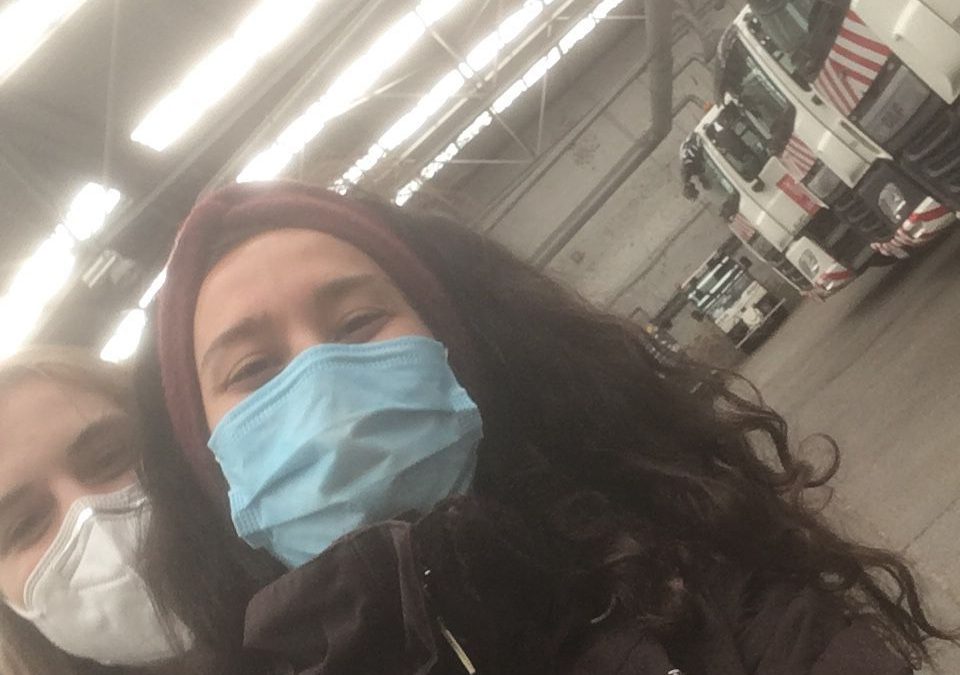By Sofie Versmissen
Living lab experience
During our Living Lab experience, we made sure our fellow students got to know the waste policy in Leuven, the actors around it and the circular economy developments taking place in the city. At the start of the day we handed a self-made handbook to the participants of our group featuring an overview of our research questions, the existing actors and their relations to each other, and the methodology we used for coding. For almost every day, one or more interviews were scheduled with key stakeholders involved in the complex web of waste management. On our busiest day, Rubia successfully guided her team through three interviews in a single morning. Once these interviews were transcribed by our peers our code tree allowed them to place the gathered information in the appropriate (sub)category When our fellow students were done with this task, we still had several policy documents ready for them to be coded. These documents were extracted from the website of key stakeholders with whom we had not been able to arrange an interview, such as Ecowerf. So there was plenty of work! The computer work carried out with the waste governance group was a good alternative to slogging in the water and dobbing in the ground for those who aren’t a fan of that! 😉
In order to give the participants of our group some fresh air, we ventured into a number of recycling parks, where waste is collected and transported to waste treatment facilities or processed on site. Officially, we were not welcome to tour these sites due to COVID-19 measures, but that did not stop Coralie and her group from making an attempt! Furthermore, Sofie and Anita saw their chance to visit the Leuven ‘city cleaning services’ building while “fishing” in the canal of Leuven with the water group. Funnily enough, the sample location was right across the headquarters of the cleaning service! During their lunch break, they took their chance and went inside to ask the head of the cleaning services if he was open to an interview with us. While the interview unfortunately did not happen, they still managed to gain some first-hand impressions.
The methodology used for the days during the fieldwork was a success! When the fieldwork days were over, all interviews were largely correctly coded which meant that the development of our results could soon begin. Our group split up into three subgroups and worked uninterruptedly on finding the answers to of our three research questions:
- Understanding the state-of-art: How is municipal solid waste both managed and governed in the city of Leuven?
- Assessing the effectiveness of the current system: What are the success factors and challenges to a sustainable waste management that promotes a circular economy in the city?
- Disclosing potential improvements to the system: What refinements to the governance of the current waste management could facilitate Leuven’s transition to sustainability and circularity?
Findings
Since we are not only analyzing the colored bag collection system, but the entire functioning of Leuven’s waste policy, we quickly noticed that we had stumbled into a spider web of connections that was difficult to unravel. Coralie, Anita and Elisha took on this task and, among other things, made clear flow charts on the pathway of specific materials waste based on the results and literature at hand. The full pathway of different material streams is strangely quite difficult to retrieve in the literature, and so developing these flowcharts is very valuable for wider use. Here are two examples of the developed
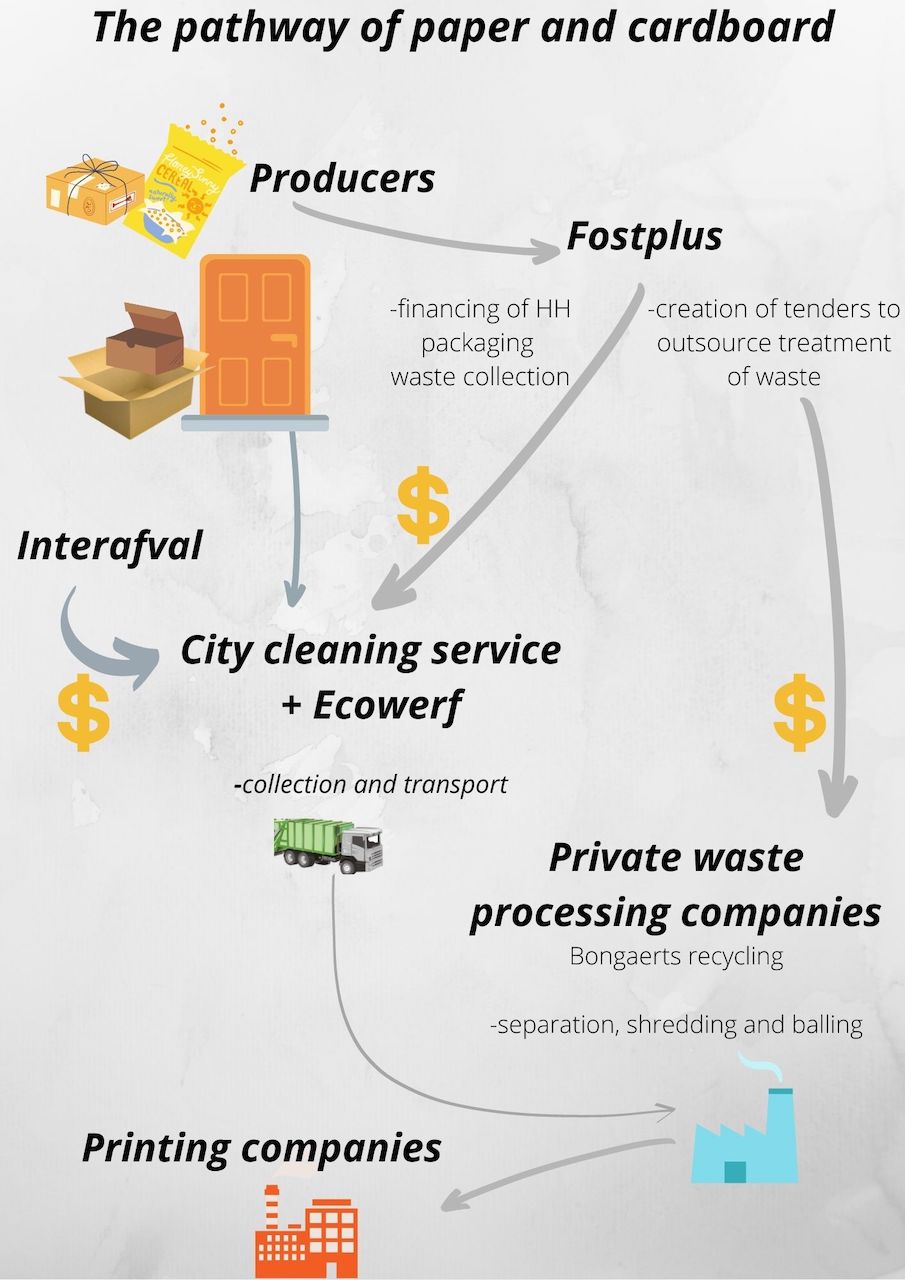
The pathway of paper and cardboard in Leuven © SUSDEV
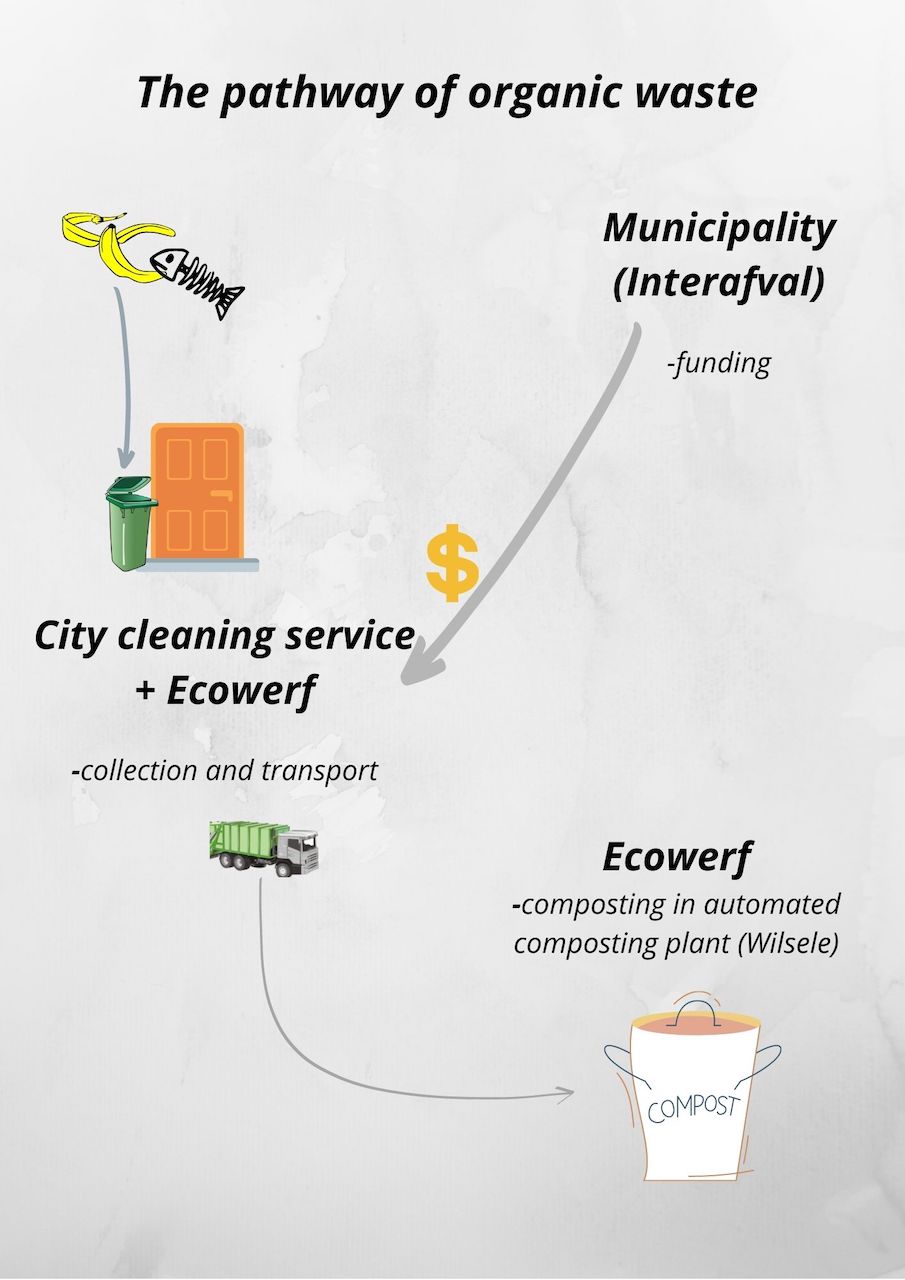
The pathway of residual waste in Leuven © SUSDEV
Rubia and Sofie took on the task of analyzing the different success factors and constraints for the current waste management system and the emerging circular economy in the city. Soon they saw that the different stakeholders were addressing the same topics, which provided useful results for our group. Below are two images citing these success and barriers.
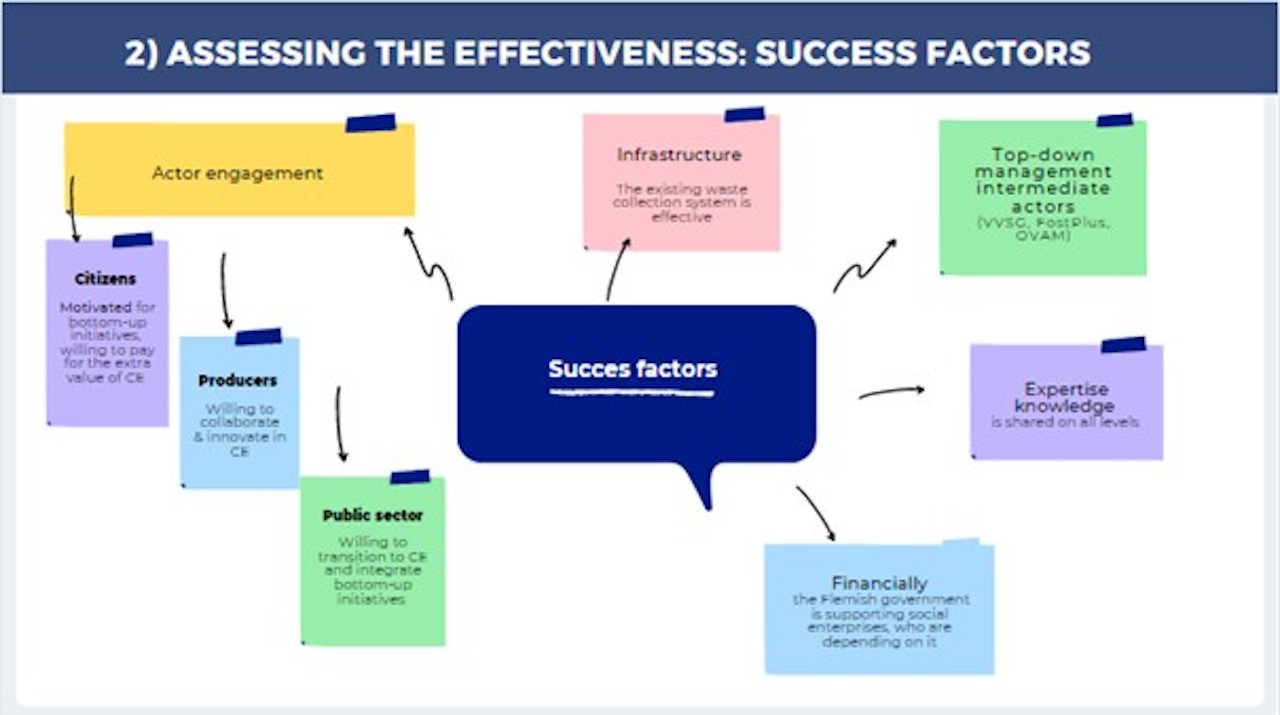
The success factors related to the waste management in Leuven © SUSDEV

The barriers related to the waste management in Leuven © SUSDEV
Finally, Ramiro set himself the task of writing recommendations to improve the current policy and to take more steps towards circularity in Leuven.
Like that, the last days of the living lab flew by and we can conclude that these two weeks were intense, both mentally and physically, but very informative and social! We got the chance to see our classmates again, to work together in real life, and we learned a lot about our own topic as well as the topics of the other groups. We found this version in Leuven not less worthwhile than in Ndumo game reserve because here we were also the pioneers to make the analysis about the waste policy in Leuven with all the related actors from the local, regional, national and sometimes European level. We now know more about an important branch within sustainable development within the city that has been a ‘home away from home’ for many of us during the last two years. It is a nice way to end the time in Leuven. On top of that, the interviewed stakeholders responded that they were interested in our research and that they would like to see our final development plan because they could possibly use it for their own operations. This gives us extra motivation to successfully wrap up our work.
So, these were our reflections from the living lab!
Greetings,
Sofie, Anita, Rubia, Coralie, Ramiro and Elisha!
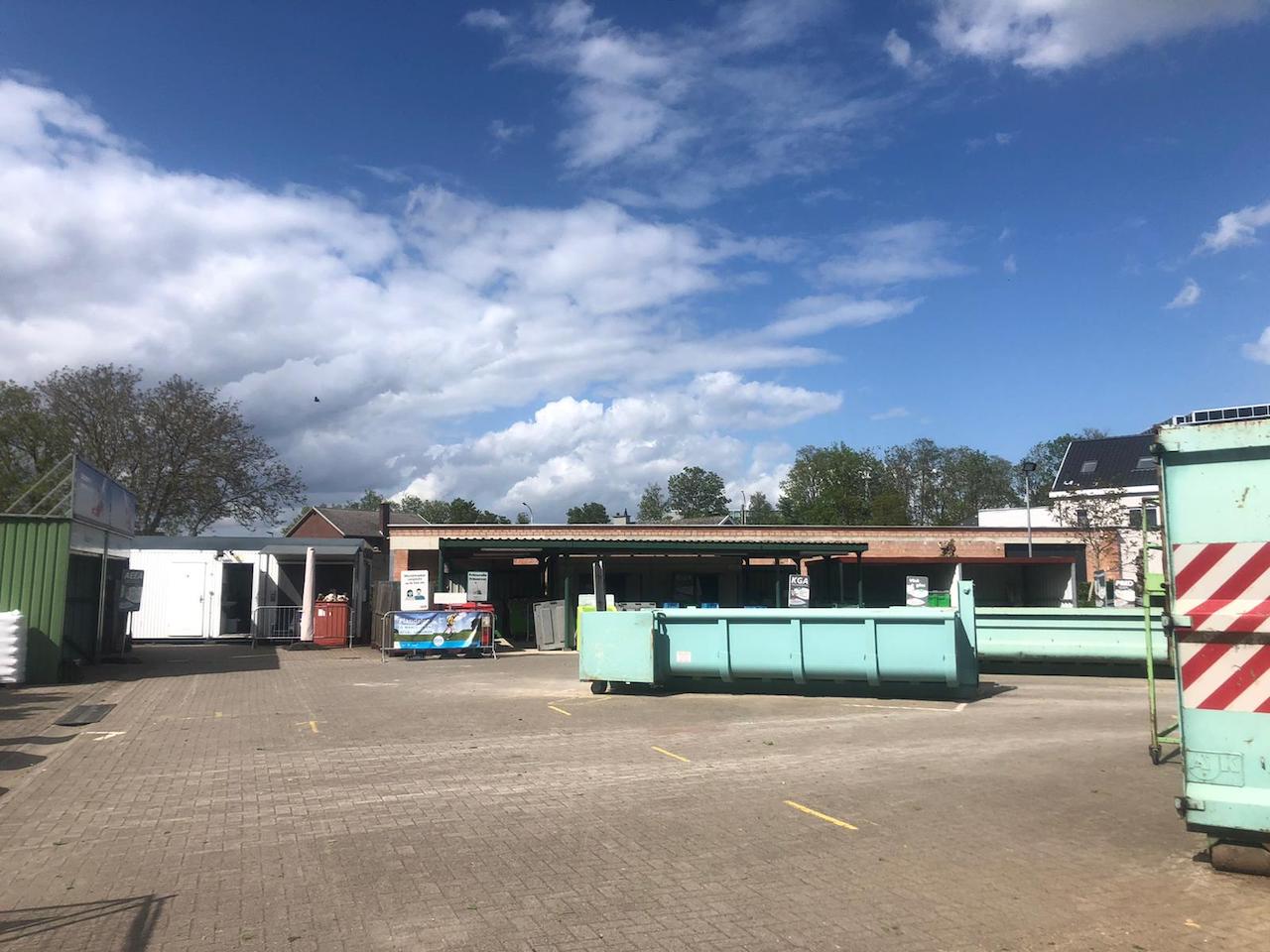
Coralies’ group visiting ecowerf © SUSDEV
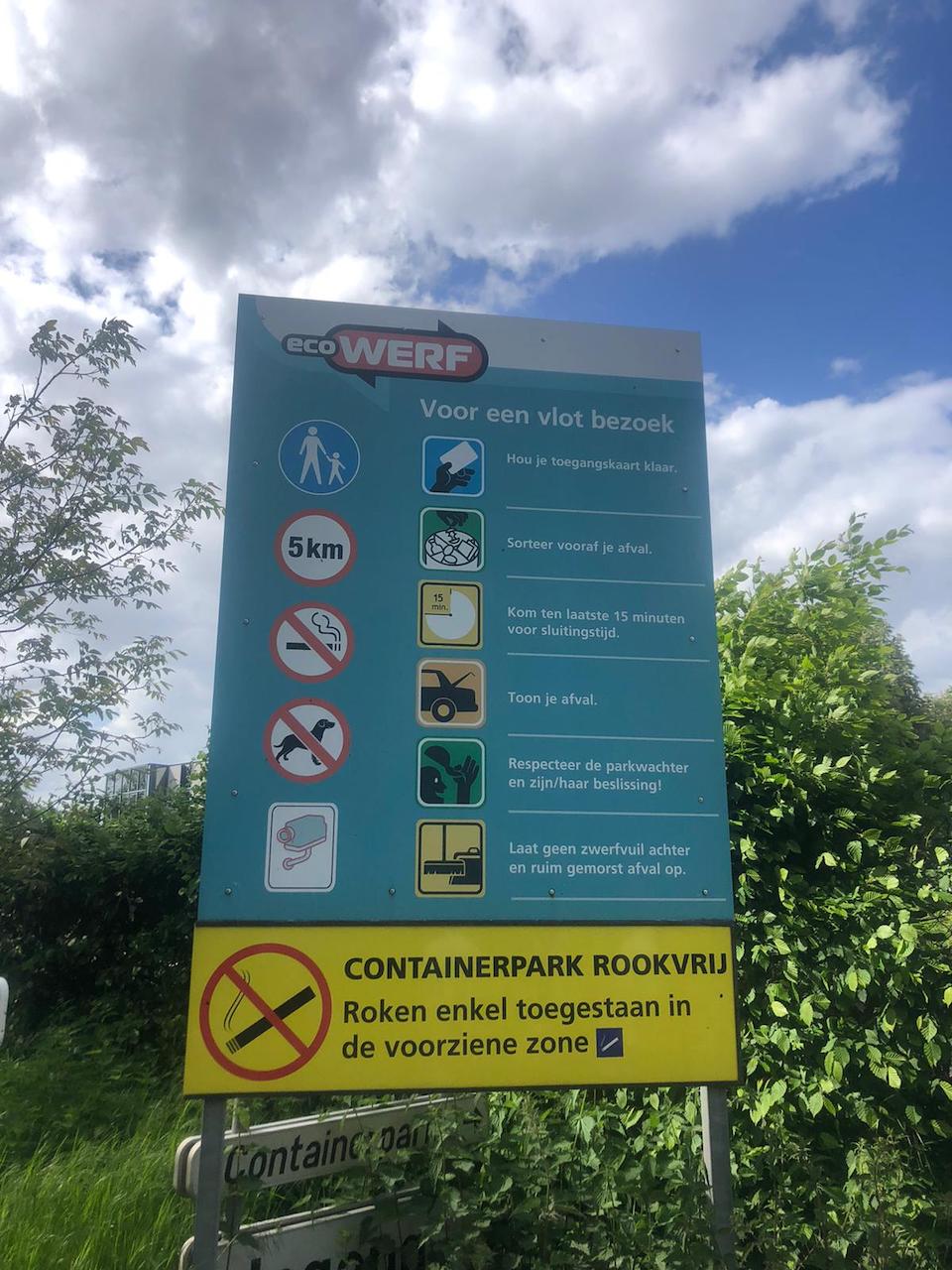
Coralies’ group visiting ecowerf © SUSDEV
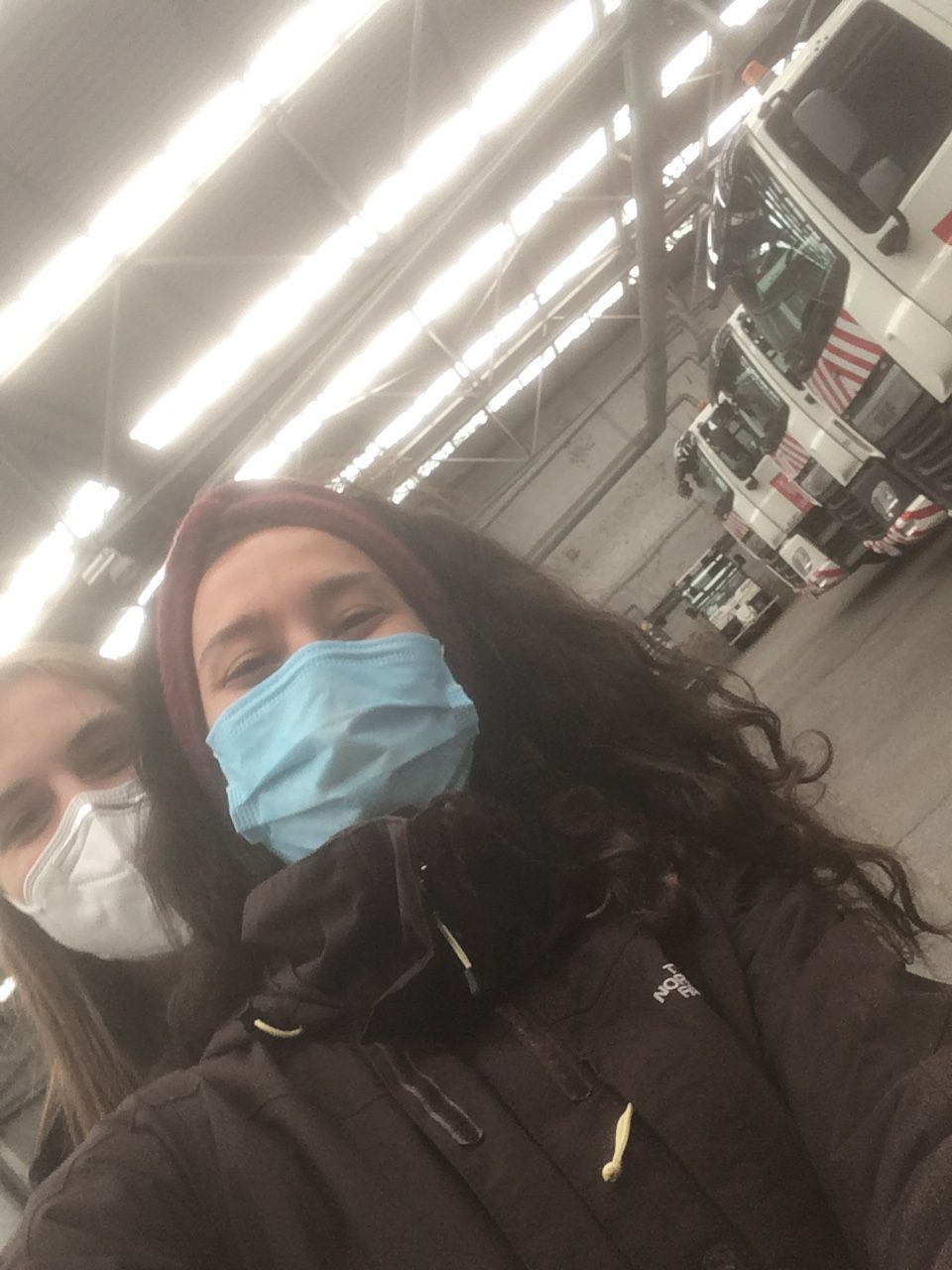
Anita and Sofie spontaneously visiting city cleaning services © SUSDEV
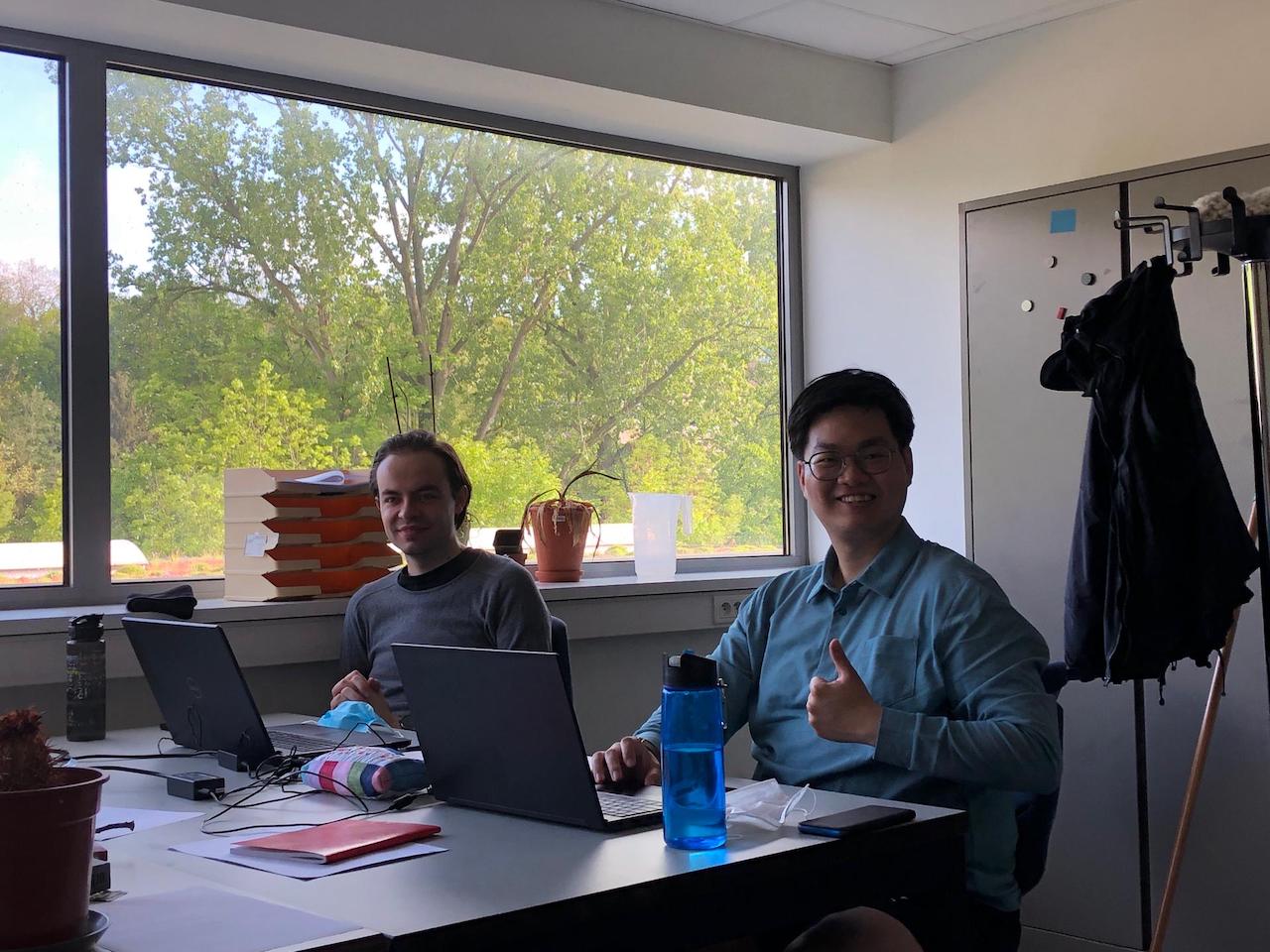
Our fellow students coding the interivews © SUSDEV
